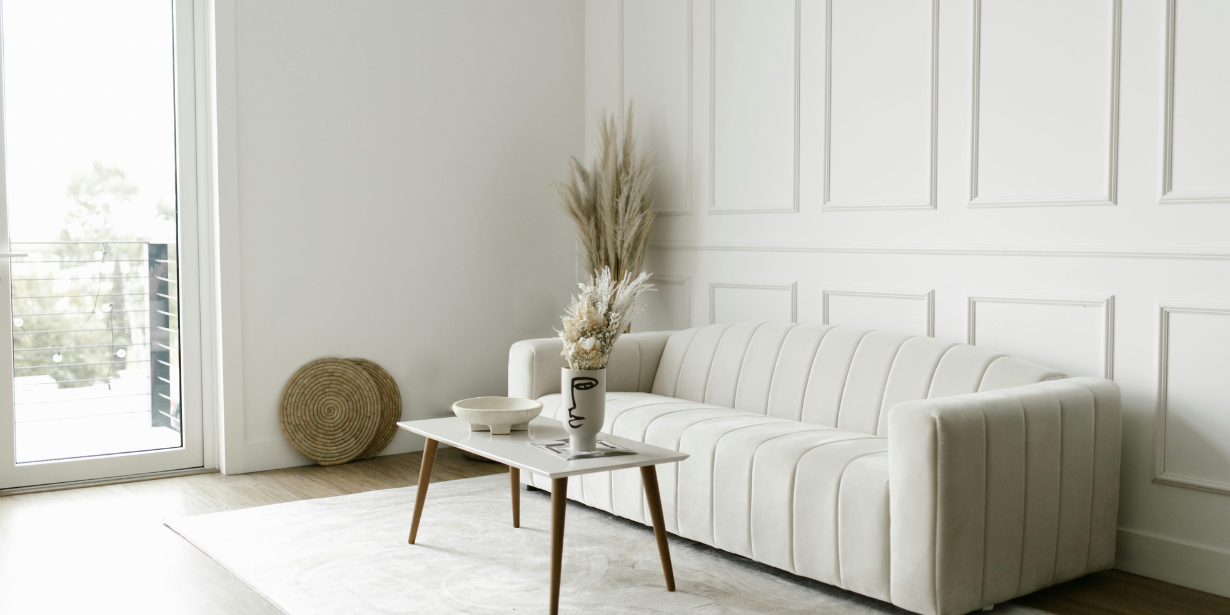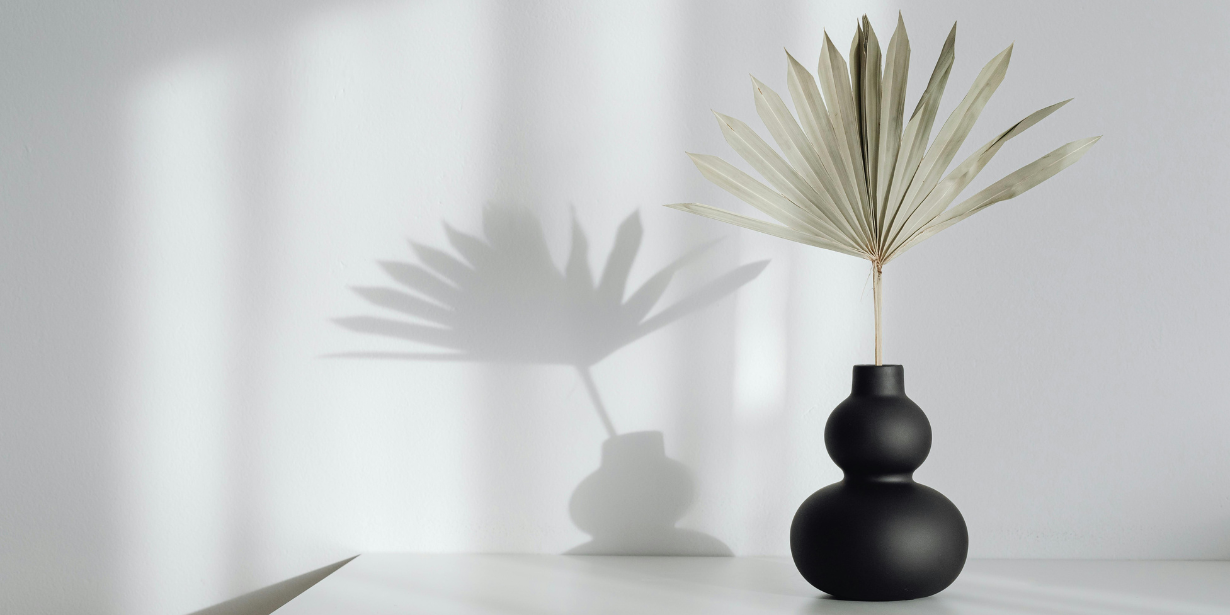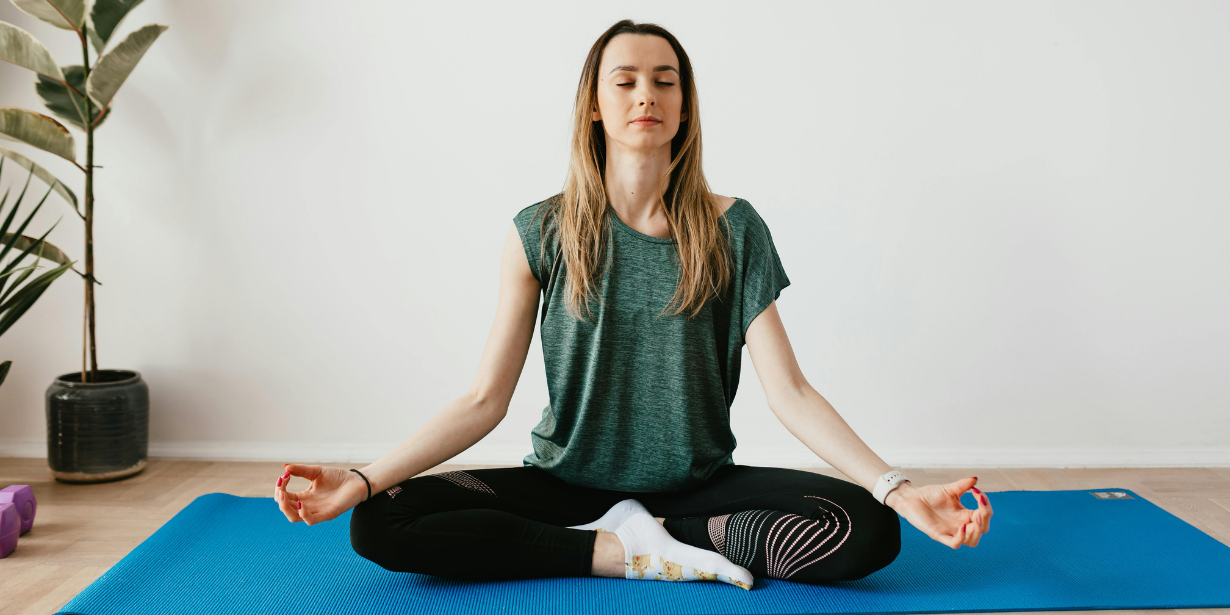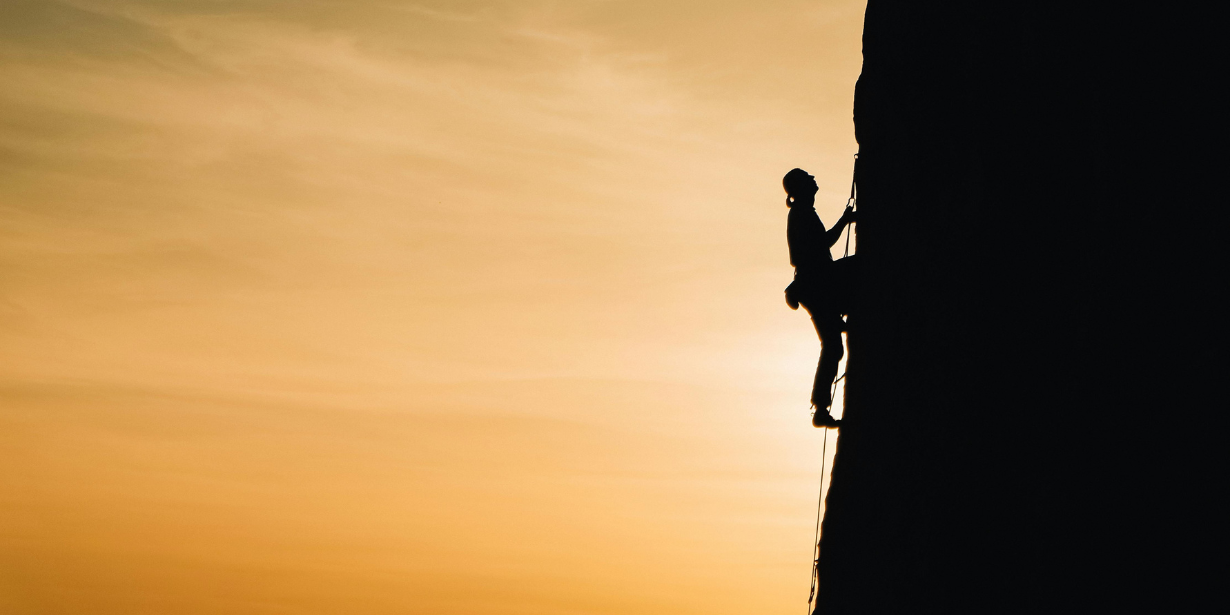Discover Minimalistic Living: Your Journey Towards Peace

This article may contain affiliate links that promote products or services related to the topic We will earn a commission when you make a purchase through these affiliate links. However, we bare no responsibility if the products or services we recommend doesn't satisfy your needs.
Highlights
|
Have you ever felt like your possessions own you, instead of the other way around? Does the constant influx of stuff leave you feeling overwhelmed and stressed? If so, you're not alone. In today's consumer-driven world, many of us find ourselves drowning in a sea of clutter.
But what if there is a way to come out of this feeling?
Enter minimalism, a lifestyle philosophy that focuses on living with intention and purpose by acquiring only what you truly need and value. Minimalism isn't just about decluttering your closet (although that's a great place to start); it's a holistic approach to simplifying your entire life. It's about shedding the excess – physical, mental, and emotional – to make room for what truly matters.
Think about it this time: a study published by the University of California, Los Angeles found that clutter can negatively impact your decision-making abilities and increase stress hormones. Another study by Cornell University revealed that people tend to spend more money in cluttered environments, highlighting the financial burden of excess.
Minimalism, on the other hand, offers a multitude of benefits. By streamlining your life, you can:
- Reduce stress and anxiety: Minimalism can significantly reduce the feeling of overwhelm and create a sense of peace in your surroundings.
- Boost your productivity: When you're surrounded by fewer distractions, it's easier to focus on what truly matters. This can lead to increased productivity at work and a greater sense of accomplishment in your personal life.
- Save money: By resisting impulse purchases and focusing on quality over quantity, minimalism can help you save money and achieve financial freedom faster.
- Gain clarity and purpose: When you declutter your physical space and mental clutter, it creates room for self-reflection and helps you identify what truly matters in your life.
Minimalism is all about liberation. It's about freeing yourself from the burdens of excess and creating a life filled with intention, purpose, and joy.
Are you excited to set off on your minimalist journey? In the next section, we'll delve deeper into the core principles of minimalism and explore the many ways you can start simplifying your life.
| TABLE OF CONTENTS |
What is Minimalism?
For years, I felt like I was constantly swimming upstream. My apartment overflowed with clothes I never wore, trinkets I didn't need, and stacks of books I hadn't cracked open in years. Every weekend seemed to be consumed by cleaning and organizing, yet the clutter always crept back in. It was a vicious cycle that left me feeling stressed, overwhelmed, and frankly, a little hopeless.
Then, I stumbled upon minimalism. It wasn't just another fad diet or trendy organizational system; it was a whole new way of thinking about my relationship with my possessions. Minimalism, at its core, is a lifestyle philosophy that focuses on intentionality. It's about consciously choosing to live with only the things that truly add value and enrich your life.
| Did you know? A study published in the Journal of Personality and Social Psychology found that individuals who accumulated fewer possessions reported experiencing greater life satisfaction. The study suggests that focusing on experiences and relationships, rather than material possessions, leads to a more fulfilling life. |
Minimalism is about mindful consumption and curating your surroundings with intention. Imagine a picturesque sanctuary, free from unnecessary distractions, where everything has a purpose and brings you joy. That's the essence of a minimalist life.
The core principles of minimalism can be broken down into a few key concepts:
- Focus on experiences over possessions: Minimalists prioritize experiences that create lasting memories and personal growth over accumulating material things. Think travel adventures, spending quality time with loved ones, or learning a new skill.
- Quality over quantity: Minimalists believe in investing in fewer, well-made items that will last a lifetime, rather than accumulating a mountain of cheap, disposable goods.
- Intentionality: Every item in a minimalist's home serves a purpose. Before bringing something new into their life, they ask themselves: "Do I truly need this? Will it add value to my life?"
- Decluttering: Getting rid of excess possessions is a justification of minimalism. This can be a physical decluttering of your home, but also a mental decluttering of negative thoughts and unproductive habits.
Examples of Minimalism in Action:
Take Joshua Becker, for instance, founder of the popular blog Becoming Minimalist. Becker and his family set off on a minimalist journey years ago, decluttering their possessions and simplifying their lives. They discovered that living with less allowed them to focus more on their passions, travel the world, and spend quality time together.
Minimalism isn't a one-size-fits-all approach. It's a personal journey of discovery, and what works for one person might not work for another. The key is to adopt the core principles and tailor them to your own life. In the next section, we will explore the several benefits of minimalism and how you can begin to implement it in your own life.

Why go Minimalistic?
Can you imagine stepping into your home after a long day and instead of visual chaos and overflowing shelves, you're greeted by a calming sense of order and serenity? Every item in your space has a purpose, sparking joy and functionality. This, my friends, is the transformative power of minimalism. But the benefits extend far beyond a clutter-free closet. Let's dive deeper into the compelling reasons why minimalism might be the key to unlocking a happier, more fulfilling life.
Reduced Stress and Increased Well-being: Our brains crave order. Minimalism helps eliminate visual clutter, creating a calmer and more peaceful atmosphere. A study published in Environmental Psychology found that living in a cluttered environment can lead to higher cortisol levels, the stress hormone. This scientific evidence highlights the connection between physical clutter and mental well-being.
Financial Freedom and Smarter Spending: Minimalism encourages a mindful approach to consumption. Instead of impulse purchases fueled by fleeting trends, you'll avoid unnecessary items and invest in high-quality pieces that will last. This shift can lead to significant savings, allowing you to pay down debt, pursue financial goals, and ultimately achieve greater financial freedom.
Greater Appreciation and Joy: When you surround yourself with fewer possessions, you naturally begin to appreciate the things you do own more. This shift in perspective can cultivate a deeper sense of gratitude and contentment. Studies published in the journal Personality and Social Psychology Bulletin suggest that experiences tend to bring us more lasting joy than material possessions. Minimalism encourages you to prioritize experiences that create lasting memories and personal growth, rather than accumulating material things that eventually lose their luster.
Environmental Sustainability: Our current consumption habits have a significant impact on the planet. By evading a culture of "more," minimalism promotes sustainable living. You'll buy less, inevitably leading to less waste and a reduced carbon footprint. Think about it – every item you don't buy is one less item that needs to be manufactured, shipped, and potentially end up in a landfill.
Enhanced Productivity and Focus: Clutter bombards our senses and steals our focus. A minimalist environment, on the other hand, provides a clear visual landscape, allowing you to concentrate on the task at hand. This can lead to increased productivity at work and a greater sense of accomplishment in your personal life.
More Time and Energy for What Matters: Less stuff means less time spent cleaning, organizing, and maintaining possessions. Imagine the hours you could reclaim by decluttering your home! Minimalism frees up valuable time and energy to cultivate your passions, spend quality time with loved ones, or simply escape the daily grind and relax.
Spark Joy and Embrace Experiences: Minimalism is about prioritizing experiences that bring joy and fulfillment. Instead of accumulating possessions, you'll focus on creating lasting memories through travel, learning new skills, or volunteering in your community.
The story of Courtney Carver, founder of the blog "Be More With Less", perfectly exemplifies the transformative power of minimalism. Carver, overwhelmed by a mountain of possessions, embarked on a minimalist journey. She decluttered her home, simplified her life, and discovered a newfound sense of freedom and joy. Today, she inspires millions to live more meaningful lives with less.
Minimalism isn't a one-size-fits-all approach. The key is to adopt the core principles and tailor them to your unique needs and values. Perhaps it's starting with a small decluttering project in your closet or reevaluating your online subscriptions. Every step towards a more minimalist life is a step towards a life filled with greater intentionality, purpose, and joy.
Guide to Minimalism
The decision to embark on a minimalist journey can feel daunting. Where do you even begin? Can you truly transform your life with overflowing closets? The answer is a resounding yes! Minimalism isn't about achieving some unrealistic state of perfection; it's about taking progressive steps towards a more intentional and fulfilling life. Here's a practical guide to help you get started on your minimalist adventure:
-
Shift Your Mindset:
The first step is a mental one. Minimalism is more than just decluttering; it's a philosophical shift in how you view your possessions. Challenge the societal pressure to constantly acquire more. Ask yourself: "Does this item truly bring joy to me? Will it add value to my life?"
-
Choose Your Decluttering Method:
There's no one-size-fits-all approach to decluttering. Popular methods include the KonMari method, which focuses on discarding items that don't "spark joy," and the one-year rule, where you discard anything you haven't used in the past year. Although, the one-year rule is about discarding items which are unused from the past year, you can set the time frame according to your liking. Experiment and find a system that resonates with you.
-
Start Small and Celebrate Milestones:
Don't try to tackle your entire home in one weekend. Begin with a manageable space, like a drawer or a shelf. The sense of accomplishment from even a small decluttering project can be incredibly motivating. Celebrate your milestones, no matter how big or small.
-
Practice "Touch It Once" Rule:
Here's a simple yet effective tip: When dealing with papers or clutter, handle each item only once. Decide to discard, file, or delegate it immediately. This prevents the dreaded "maybe pile" that often leads to procrastination.
-
Declutter More Than Just Stuff:
Minimalism extends beyond physical clutter. Unsubscribe from unused email lists and digital subscriptions. Unfollow social media accounts that no longer inspire you. Decluttering your digital space can free up mental bandwidth and reduce distractions.
| Did you know? A study published in the Journal of Experimental Psychology: General found that people who spend less time on social media report higher levels of well-being. This research suggests a negative correlation between social media use and overall happiness. |
The Minimalist Warrior:
Take inspiration from Fumio Sasaki, a Japanese minimalism guru and author of the life-changing book "Goodbye, Things". Sasaki transformed his own life through minimalism and now inspires millions to shed excess and accept a simpler, more meaningful way of living.
Remember, minimalism is a journey, not a destination. There will be setbacks and moments of doubt. But with each step you take, you'll be creating a life filled with greater intentionality, freedom, and joy.
In the next section, we will discuss living a minimalist lifestyle. We'll explore strategies for building a capsule wardrobe, prioritizing experiences, and fostering mindful consumption habits.

Living a Minimalist Life
Congratulations on taking the first steps towards a minimalist lifestyle! You've decluttered your physical space and begun to shed the burden of excess. Now, it's time to integrate these principles into your everyday life. Here are some powerful strategies to cultivate a minimalist life that prioritizes experiences, fosters mindful consumption, and pursue freedom:
-
Building a Capsule Wardrobe:
A capsule wardrobe is a curated collection of high-quality, versatile pieces that can be easily mixed and matched to create multiple outfits. This not only saves time and reduces decision fatigue but also ensures you cherish each item in your closet. The average American only wears 20% of their clothes 80% of the time. This statistic emphasizes the potential for a capsule wardrobe to streamline your clothing and reduce decision fatigue.
-
Prioritizing Experiences Over Possessions:
Minimalism encourages you to cultivate a life rich with experiences. Instead of spending money on accumulating more stuff, invest in travel adventures, learning a new skill, or volunteering in your community. These experiences create lasting memories and personal growth, far exceeding the fleeting satisfaction of a new purchase.
Think about it: Would you rather have the latest gadget or a weekend getaway with loved ones? The memories created during that trip will stay with you long after the gadget becomes obsolete.
-
Practicing Mindful Consumption:
Minimalism is about consuming with intention. Before making a purchase, ask yourself:
- Do I truly need this?
- Will this add value and joy to my life?
- How long will this item last?
- Can I borrow or rent this instead of buying?
By being mindful of your purchases, you'll avoid impulse expenses and invest in quality items that will serve you well for years to come.
The Minimalist Baker:
Consider the story of Erin Boyle, founder of the blog "Minimalist Baker". Boyle streamlined her recipes to use only 10 essential ingredients, proving that delicious food doesn't have to be complicated. This philosophy extends beyond the kitchen; minimalism encourages you to cultivate a life with fewer but higher quality experiences and possessions.
Living a minimalist life isn't about radical deprivation; it's about cultivating freedom. Imagine a life free from the clutter of possessions, the burden of debt, and the constant pressure to consume. Minimalism allows you to focus on what truly matters – building meaningful relationships, pursuing your passions, and creating a life filled with joy and purpose.
In the next section, we'll explore minimalism in intangible goods, such as in digital space and financial aspects, to welcome minimalism in every part of your lives.
Minimalism beyond stuff
Minimalism extends far beyond the physical realm of your home. It's a philosophy that can be applied to each and every aspect of your life, nurturing a sense of calm and clarity in a world increasingly saturated with information and stimuli. Let's explore some ways to embrace minimalism beyond physical clutter and cultivate a more mindful digital and emotional experience.
-
Digital Minimalism: Taming the Tech Tide:
Our digital lives are often overflowing with emails, social media notifications, and endless news feeds. This constant barrage of information can be overwhelming and lead to information overload. Digital minimalism is the practice of intentionally managing your digital space to reduce distractions and reclaim your time and attention.
Here are some strategies to get you started:
- Unsubscribe from unused email lists and subscriptions.
- Declutter your social media accounts. Unfollow accounts that no longer inspire or uplift you.
- Schedule specific times to check email and social media. Avoid the constant urge to check notifications.
- Utilize digital detox periods. Disconnect from technology for designated periods to reconnect with yourself and the world around you.
-
Financial Minimalism: Streamlining Your Finances:
Minimalism can also be applied to your financial life. Financial minimalism focuses on intentional spending, debt reduction, and financial freedom.
Here are some key principles:
- Create a budget and track your spending.
- Prioritize needs over wants.
- Pay down debt and avoid unnecessary credit card use.
- Invest for your future financial goals.
By adopting these principles, you can free yourself from the burden of debt and create a life of greater financial security.
The Minimalist Investor:
Take inspiration from Mr. Money Mustache, a popular blogger who achieved financial independence through minimalism and intentional living. His story showcases the power of minimalism to create a life of freedom, not just from physical clutter, but also from financial constraints.
-
Minimalism and Relationships: Setting Boundaries and Cultivating Quality Connections:
Minimalism can also enhance your relationships. By setting boundaries and prioritizing quality connections, you can create a more meaningful and fulfilling social life.
Here are some tips:
- Learn to say no to commitments that drain your time and energy.
- Focus on cultivating deeper connections with a few close friends and family members.
- Practice mindful communication and be present in your interactions with others.
By embracing minimalism in your relationships, you can create a more supportive and enriching social circle.
Minimalism: A Journey of Freedom
Minimalism is a holistic approach to living a more intentional and fulfilling life. It's about tidying up not just your physical space, but also your digital world, your finances, and even your relationships. By embracing minimalism, you can create a life filled with freedom, clarity, and the time and energy to pursue what truly matters to you.
In the next section, we'll address some common challenges you might face on your minimalist journey and equip you with strategies to overcome them.

Common Challenges and How to Conquer Them
The path to minimalism is rarely a straight line. There will be bumps, detours, and moments of doubt. Here are some common challenges you might face and strategies to help you overcome them:
-
Emotional Attachment:
Letting go of possessions, especially those with sentimental value, can be emotionally difficult. Acknowledge your feelings and allow yourself to process them. Ask yourself: "Does this item truly spark joy, or is it just taking up space?"
Consider alternatives: Can you take a picture of the item to remember it? Could you donate it to someone who would cherish it?
-
Fear of Missing Out (FOMO):
Minimalism can sometimes feel like social isolation, especially when surrounded by a culture of constant acquisition. You can still enjoy the experiences with friends and family, focusing on quality time over material extravagance.
Focus on building meaningful connections with those who value you for who you are, not what you own.
-
Supportive Network:
The journey towards minimalism can be easier with a support system. Talk to friends and family about your goals. Consider joining online minimalist communities to connect with like-minded individuals who can offer encouragement and share their experiences.
-
Relapses and Setbacks:
Don't beat yourself up if you have a setback. Minimalism is a journey, not a destination. Forgive yourself, learn from the experience, and recommit to your goals.
The Minimalist Athlete:
Professional surfer Kelly Slater exemplifies the power of minimalism. Despite achieving immense success, Slater maintains a simple lifestyle, prioritizing experiences over possessions. His story reminds us that a fulfilling life doesn't require an accumulation of stuff.
-
Minimalism for the Whole Family:
Minimalism can feel overwhelming with a family. Involve everyone in the decluttering process. Turn it into a fun activity, like a donation drive where children can choose items to give to those in need.
Remember: Minimalism is a family journey, and everyone can benefit from a more intentional and clutter-free life.
Embrace the Journey:
Minimalism is a lifelong adventure, filled with challenges and triumphs. By acknowledging these challenges and implementing the strategies outlined above, you can navigate your minimalist journey with greater ease and confidence. Remember, the goal isn't perfection; it's about progress. Every step you take towards a more intentional and clutter-free life is a step in the right direction.
Conclusion
Finally, you made it to the end. You've embarked on a transformative journey towards a minimalist life. You've decluttered your physical space, embraced mindful consumption habits, and begun to cultivate a life rich with experiences. But minimalism is more than just a clean closet or a streamlined wardrobe; it's a philosophy that can encourage you to create a life filled with greater purpose, freedom, and joy.
Imagine this:
- Waking up to a calm and organized space that reflects your values and inspires you.
- Having the financial security to pursue your passions and travel the world.
- Freeing yourself from the burden of clutter to focus on what truly matters – building meaningful relationships and creating lasting memories.
Minimalism is about shedding the excess that weighs you down and welcoming a life filled with intentionality. This journey may not always be easy, but the rewards are truly life-changing.
Here are some final thoughts to empower you on your minimalist path:
- Minimalism is a journey, not a destination. Don't get discouraged by setbacks. Celebrate your progress, no matter how small.
- Focus on progress, not perfection. Minimalism is a personal journey. Tailor it to your unique needs and lifestyle.
- Minimalism is a gift that keeps on giving. The more you declutter, the easier it becomes to maintain a minimalist lifestyle.
Remember: You are not alone on this journey. There's a vibrant online minimalist community filled with like-minded individuals who can offer support and inspiration.
Minimalism isn't a fad; it's a powerful movement that is transforming lives across the globe. Join the movement and discover the joy of living with less and experiencing more.
Embrace the adventure, and get ready to unlock the full potential of a life transformed by minimalism!

Subscribe To Our Newsletter Today!
Do you like the content we post? Subscribe to our newsletter today and we will send alerts on our latest blog articles right to your inbox. Don't worry, we won't spam you.



